Herbal Medicine
What is Herbal Medicine?
Herbal medicine is a modality of non-invasive healing of human body using plants in an appropriate preparation. Herbal medicine is effective and completely safe when used in their whole and natural state. A herbalist uses natural herbal preparations to assist the body to heal, cleanse and empower itself. Today’s herbal medicine is a science and herbs can be classified according to their energetic qualities and their photochemical constituents. Pharmacology is a study of the interactions of biologically active constituent within the living system. Plants consist of a wide rage of combinations of active constituents just to mention only few such as: polysaccharides, phenols, glycosides, mucilages, flavonoids, tannins, resins, saponnins, alkaloids, salicins and polyssacharides. The healing power of herbs is very diverse. Any plant can be broken down into some of the above mentioned complex pharmacological constituents and because of the perfect combination of active constituents the healing power of herbs is unlimited. Also, a herb can have several properties depending on the part used and method of preparation.
How Does Herbal Medicine Work?
Medicinal plants (herbs) have extremely complex chemical structure, which cannot be copied by human. Nature has created medicinal plants to maintain and restore human health. The combination of active constituents gives medicinal plants many actions such as: diuretic, chologogue, sedative, purgative, anti-inflammatory, hypotensive or carminative; just to name only few. One medicinal plant always has several actions. For instance olive leaf extract is diuretic, hypotensive, antibacterial, antiviral, anti-fungal and anti-parasidal. This allows treating several health problems at the same time using only 4-6 herbs in a formula. Some herbs used in combination have synergistic effect, which means that their therapeutic effect is enhanced and is more effective than each individual herb when used along.
I feel passionate about herbal medicine and my herbal dispensary contains over 200 herbal tinctures. Some herbs have a “doctrine of signature” – the location where they grow, the color, the shape or pattern on the flowers which gave human kind in the past an indication of its medicinal properties.
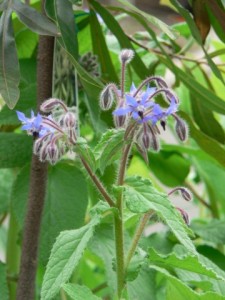
Borage Borrago officinale
Borage is cultivated in gardens not only for its amazing sky blue star-shaped flowers but also for its culinary and medicinal uses. Borage is an excellent adrenal tonic, expectorant, demulcent, diuretic anti-inflammatory and increases bile flow. So it is useful in bronchitis, inflammation of kidneys and muscles. It is scheduled in Australia but it was widely used traditionally and is currently used by herbalists in Europe and other continents.
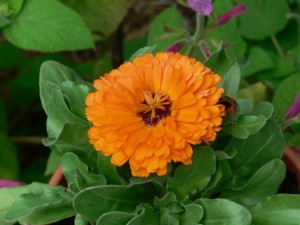
Calendula Calendula officinalis
Calendula it known for its anti- inflammatory properties, antiseptic, antibacterial, antiviral and healing properties. It can be used internally as infusion, tincture, or externally as cold compress or in cream. Its medicinal use ranges from tissue regeneration, killing bacteria, viruses and fungi, improving varicose veins, stomach ulcers and broad range of digestive and reproductive problems. Its topical skin applications are mostly known to the majority of people.
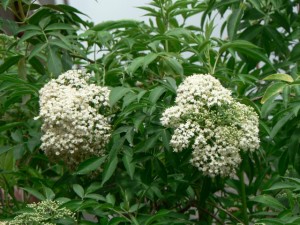
Elderflower Sambucus nigra
Both the flowers, leaves , bark and the berries have medicinal properties. The flowers are diuretic, anti-inflammatory and stimulating sweating, while berries are laxative, anti-inflammatory and diuretic. Elderflower is an excellent herb in cold and flu, sinusitis or lung congestion. Using berries or bark is not recommended by a lay person.
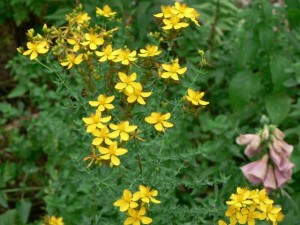
St John’s Wort Hypericum Perforatum
St John’s wort is such a diverse and a powerful plant. It is indicated for anxiety, depression, some viral infections, it is analgesic and antiseptic. Its medicinal use has applications in infections of respiratory and gastrointestinal tract and in nervous system conditions There are contraindications of St John’ wort with some medication so never get St John wort over the counter and tell your naturopath /herbalist what medication are you on.
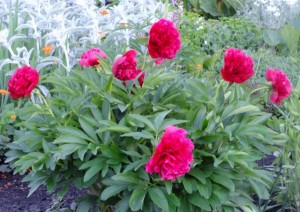
Peony Paeonia lactiflora
The medicinal parts used is the root of Peony. It is herb for female reproductive system, analgesic, stress related conditions. Peony was a highly regarded herb and garden ornamental in Tang dynasty in China and considered woman’s remedy.
